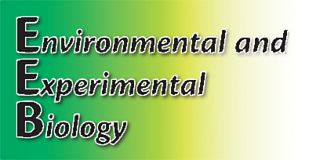
On-line: ISSN 2255–9582

| Faculty of Biology, University of Latvia | ||||||

|
Hard copy: ISSN 1691–8088
On-line: ISSN 2255–9582 Environ Exp Biol (2020) 18: 129–134
|
|||||

|
About the Journal | Retractions | Open Access | Author Guidlines | Current Issue | Archive |
|
Environmental and Experimental Biology |
Environ Exp Biol (2020) 18: 129–134 |
Problems related with refining of water-in-oil (W/O) petroleum field emulsions and also produced water evacuation limitation have created a need for more research in practical demulsification. Among the most commonly used demulsification techniques (e.g., chemical, biological, membrane, electrical, and microwave irradiation) used in the separation of water from crude oil, biological demulsification with bacterial demulsifiers or biodemulsifiers is a new biocompatible method with relatively efficient performance. The main goal of this study was to obtain demulsifying bacteria. Following a multi-step screening and enrichment method and with the aid of biochemical and physiological tests and 16S rDNA sequencing analysis a demulsifying bacterium, Delftia sp. strain HS3 (accession number: MF139710) was isolated from crude oil samples of an oil refinery located in southwest Iran. The presence of hydrocarbon material in growth medium was found to be unnecessary for production of the biodemulsifier. The demulsifying ability of the isolated bacterium was investigated through demulsification tests on W/O model emulsions. The demulsifying activity of the produced biodemulsifier was thermally stable and it increased with bacterial culture age. This bacterium has potential as a biodemulsifier producer for future studies and industrial demulsification applications.